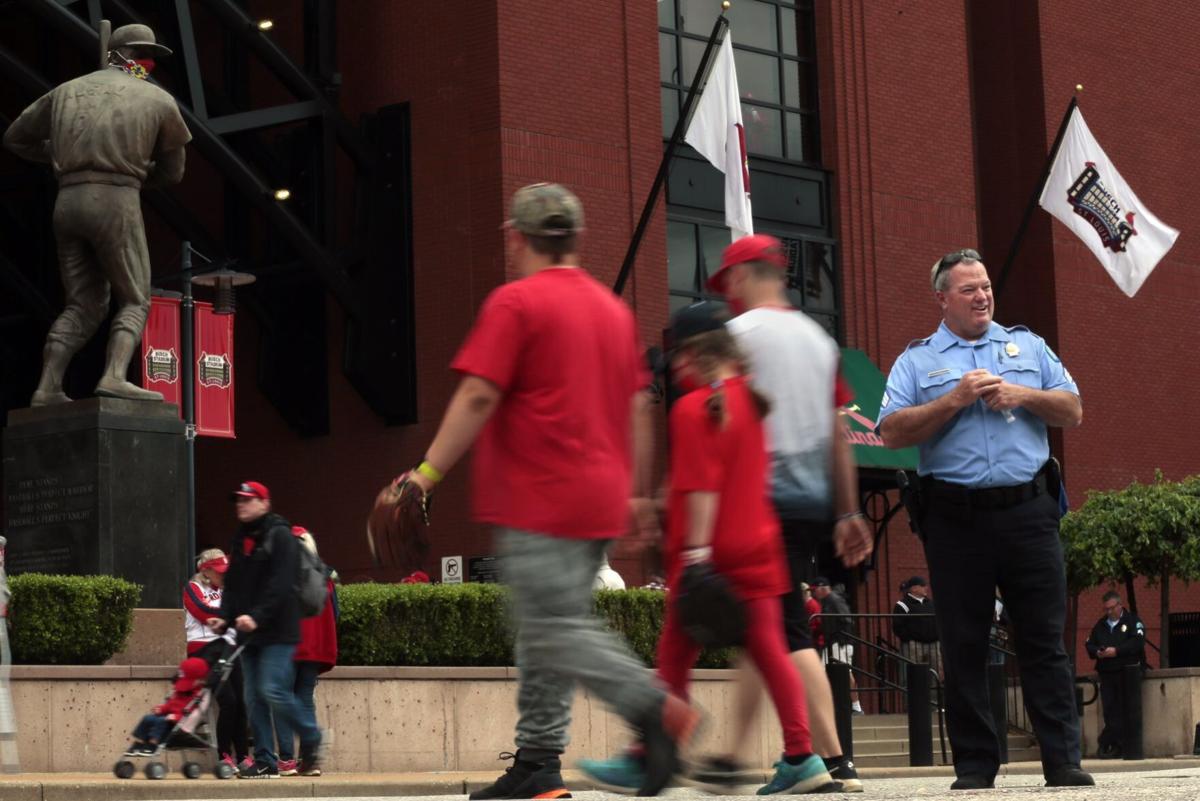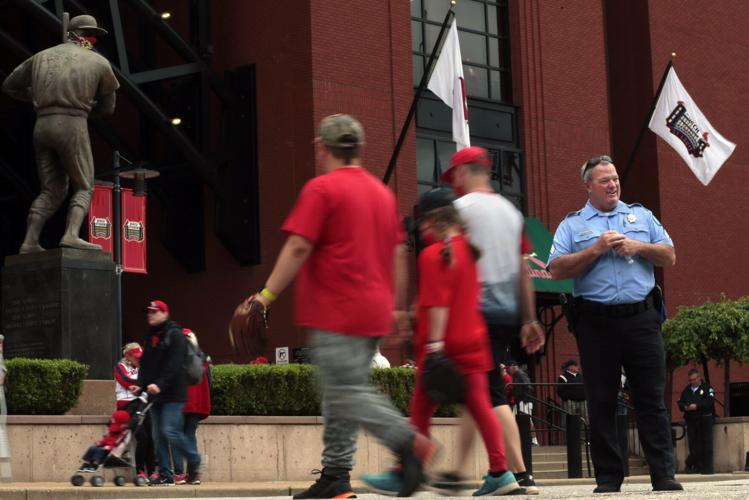ST. LOUIS — A nonprofit that supports local police is spending $860,000 to put additional officers on patrol in downtown St. Louis through a pilot program spearheaded by the department’s new chief.
The initiative pays officers about $70 an hour in overtime pay and is funded by the St. Louis Police Foundation. The program began July 7, just weeks after a mass shooting downtown left one teenager dead and several others injured.
The contract, obtained through a records request, is a marked departure from the foundation’s which include providing equipment, training and programs for city and county police. The organization also of Chief Robert Tracy’s $275,000 compensation — a move that increased the chief’s pay in an effort to make the position more appealing.
People are also reading…
“Whatever we choose to fund, it is because we have been asked to support it,” Michelle Craig, the foundation’s president and executive director, said in an email. “And in this case, we were asked to support this pilot program by the chief.”
The foundation has raised more than $30 million in private donations since its founding in 2007. In 2021, it had just over $5.6 million in savings, according to tax documents. Its 25-member board is filled with influential St. Louisans, including Kathy Osborn, president and CEO of the Regional Business Council; Bob O’Loughlin, chairman and CEO of Lodging Hospitality Management, which owns Union Station and Westport Plaza; and Bill Dewitt III, president of the St. Louis Cardinals.

Newly named St. Louis police Chief Robert Tracy makes remarks as the first chief named from outside the department ranks on Wednesday, Dec. 14, 2022, at City Hall. Tracy was the police chief in Wilmington, Del.
Tracy, who came to St. Louis in January from Delaware with a reputation for culture change and crime prevention, told the Post-Dispatch he chose to deploy the pilot program downtown because of its role as a gathering place for residents. He said he wants people to feel safe there, which he believes will increase tax revenues that can fund additional programs.
“It helps the whole city out,” Tracy said in an interview this week. “It helps support police officers, other city agencies and also programs that can go to the whole city. … It’s not me putting a priority on one place over the other. It’s just a strategy. … I’m not forgetting about the rest of the city.”
The program will run for five months and put more cops on downtown patrol during peak traffic times, such as weekend nights and events that bring large crowds. The program also paid to repair five department vehicles.
“What we really want to do is have more of an omnipresence,” Tracy said.
Tracy said the money is not factored into the department’s annual overtime budget for officers, which is $10.6 million for the fiscal year that began July 1. That’s an increase of more than $3.5 million from what the department was budgeted for overtime pay during the last fiscal year. In the previous two years, the department overspent its officer overtime budget by millions of dollars.
The funding model — an outside entity paying police extra money for overtime work — is not new to the city, but this year marks the first time the St. Louis Police Foundation has provided the money, said Maj. Renee Kriesmann.
The chief said he modeled the effort after the South Grand Community Improvement District, which provides the money to pay officers who work extra shifts. Those shifts, Tracy said, provide more flexibility for the department than when officers work secondary jobs for private security companies, such as The City’s Finest.
The City’s Finest, staffed with about 200 off-duty police officers who have much of the same authority as when they’re on duty, has a security contract with several city neighborhood organizations, including the Downtown Community Improvement District. While that CID would not release the details of the downtown contract, owner Charles Betts said there are typically about two security officers working downtown at a time — and more during major events.
The Downtown CID has boosted its spending on security services this year by more than $100,000.
But officers working for The City’s Finest let on-duty cops handle and investigate major crimes. In Tracy’s pilot program, the overtime officers function like they would during any other shift.
The department’s leadership meets frequently throughout the week to assess events, recent crime and upcoming needs, the chief said, and they create additional officer assignments based on those factors. The additional shifts are filled on a volunteer basis — they are never mandated, like traditional overtime sometimes is when need arises.
Pay for the secondary shifts is around $15-$25 more per hour than most officers receive for typical overtime pay, which is time and a half.
“We’re filling those slots, and then once the money is spent, we’re going to figure out where we want to go from here,” Tracy said. “I think so far, it’s been pretty successful.”
Tracy said the program may expand to other neighborhoods in the city once the pilot program is complete.











